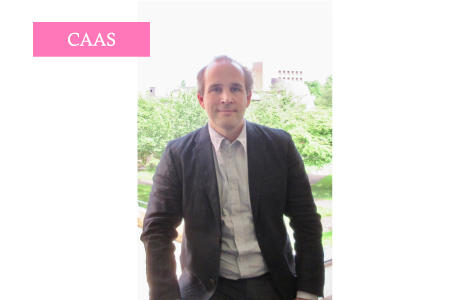Alexandre Roy

- 役職/
Position - Former Visiting Associate Professor
- 研究分野/
Field - Japanese Economic History
?Tell me about your research briefly.
My field of research is "Economic History". When I started I wanted to understand why Japan succeeded in its Economic development, so I dedicated my PhD dissertation to studying the development of the Coal sector, especially its international trade. Japan is usually presented as a country "with scarce natural resources", but this is not factually true. For instance, Japan had much more coal than France to sustain her "Industrial Revolution", so much that she could afford to export million tons of it for decades... whereas France had to import huge volumes of coal from Great Britain on an ever-growing scale. Now, I am focusing on the development of the Aircraft industry sector in Japan, a "high-tech" sector quite different from the coal's one, this leads me to deepen my understanding of the Japanese evolution from the 19th Century into the field of technological innovations. It is fascinating.
?In TUFS what is your lecture?
I have decided to share with my students at TUFS the course I'm teaching in France about the Japanese Economy and Economics. It is about both the evolution of Economic Thought and the "material" Economy. Due to my delayed coming to Japan because of the Corona crisis, I have to focus on the Thought part. The aim of the course is to show that science can not be a simple copy: "copying" or "imitating" is part of the very first step of science, as science always refers to something already preexisting... So it is irrelevant to limit the Japanese Economics to the image of an "imported science" (輸入学), this expression is meaningless and can be harmful.
This summer, I will also teach a class on "Evolution and Revolution: a compared history of Japan and France in Modernity (1600-2020)". I will challenge the classical point of view opposing the "Modern French Revolution" and the "Feudalistic Japanese Backwardness", an image still strong in Western countries, and especially in France I think.
?Japan studies in TUFS have issued a policy to lay emphasis on the reinforcement of the Japan's ability to deliver a message to the world. What do you think is necessary for that?
It is a difficult question to deal with because there are a lot of ways to understand it. What is "Japan"? Does it refer to the Japanese government? the civilian people living in Japan? Japanese nationals? Etc. And what about "the world"? Can "Japan" address the same message, and in the same way, to the USA and Cambodia, for instance?
In a place like TUFS, one can study different human societies, cultures and civilizations, and can learn their languages. This is the most important thing to do for someone who intends to deliver a message "to the world". Regarding "Japan Studies"in itself, I would say that it is important to present a positive image of Japan, but not a naive one. For instance, Pacifism is an ideal that Japan could herald globally... and in order to understand Pacifism it is important to study the woes and "reasons" of War, by facing the recent Japanese history for example, etc.
?How about TUFS and students?
TUFS is a very nice place to work at. I have to say the students are lovely. Never loud, openminded, not late, they do not complain and are hardworking, to me they are like a model!
?Compared with overseas, what is good in Japan and not good in Japan?
That's too big a question for a proper answer. What is "overseas"? Peru? Senegal? Italy? Coming from France, having lived in Morocco and Vietnam, I can hardly say bad things about "Japan". Everywhere I go, I can find a bookstore, libraries are huge... it is a paradise for a bookworm like me. Culturally speaking, I would dare to say that Japan can be a model. This could be my own message from "Japan" to "the World".
Also, Pacifism is a strong political value, and Japan can be a herald of Pacifism at a global scale, as long as its Constitution remains pacifist.




